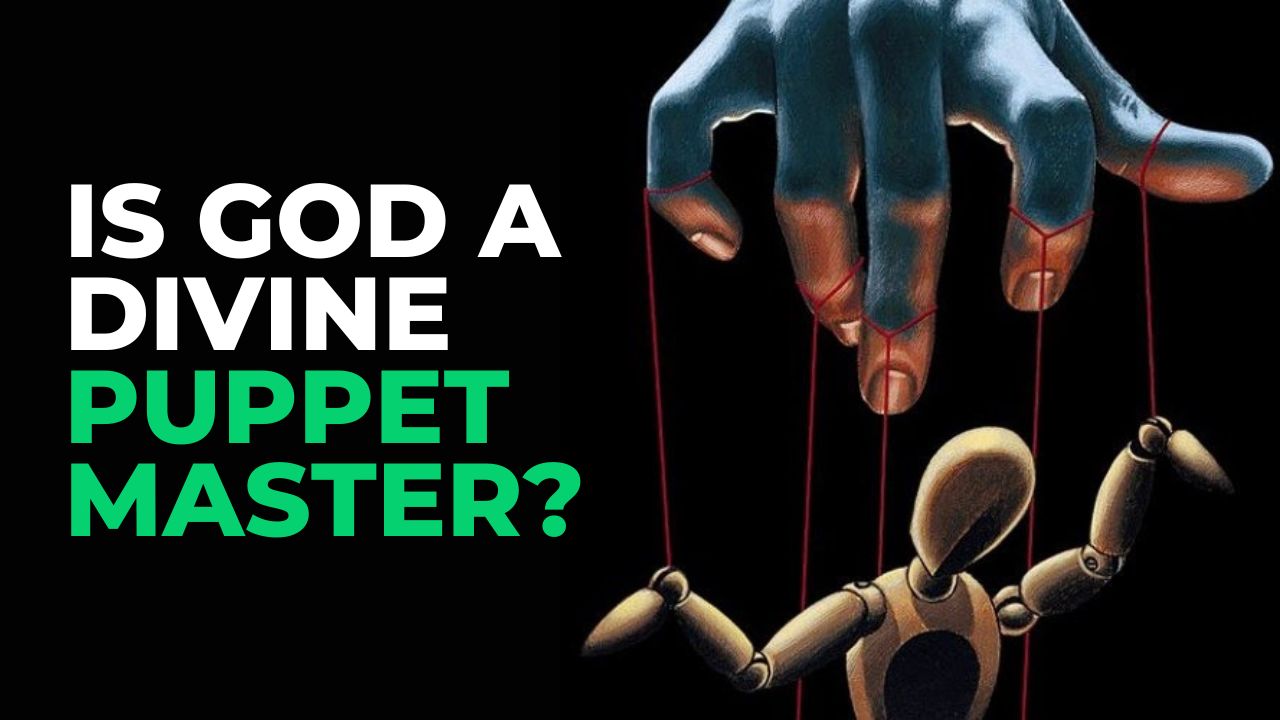Introduction
Within the the tapestry of Christendom, the intricate threads of belief weave a fascinating narrative about the relationship between human actions and the divine hand of God. On one side, there are those who champion the idea that humans possess a considerable degree of free will, emphasizing the responsibility to choose how to respond to God’s call. On the flip side, there are proponents of the belief that God’s sovereignty is absolute – that our salvation hinges solely on God’s intervention.
As I journey through my own faith, both experientially and scripturally, I find myself convinced that we bear a significant responsibility to respond to God’s advances. In this exploration, we’ll delve into eight compelling verses that affirm the existence of our free will, even in the grandeur of God’s sovereignty.
Unwavering Faith: Setting the Stage
Before we immerse ourselves in these enlightening verses, let’s dispel the notion that having free will and acknowledging God’s sovereignty is an either/or conundrum. Instead, it’s a both/and situation. God reigns sovereign over all creation – the master architect of the universe. What God decrees comes to pass, and His omnipotence allows Him to step into any situation as He sees fit.
Yet, in the tapestry of our lives, both experiential anecdotes and scriptural passages paint a different picture. We are endowed with choices beyond mundane decisions like what clothes to wear or what TV program to watch. Our choices, especially those regarding faith and salvation, are not predetermined by God, but rather, we are called to respond appropriately to Him.
Genesis 4:6-7: A Foundational Tale
To set the stage, let’s consider Genesis 4:6-7, the tale of Cain and Abel. In this narrative, both brothers bring offerings to the Lord, but only Abel’s offering finds favor. God’s interaction with Cain highlights a key point – the importance of choice. Cain had the opportunity to make a better decision, and God’s words imply that he possessed the agency to do so. The subsequent warning about the consequences of refusing to do what is right underscores the cause-and-effect nature of choices, dependent on free agency.
The Eight Verses: Illuminating Our Free Will
Now, let’s dive into the eight verses that underscore our free agency.
VERSE 1- Deuteronomy 30:19
‘I call heaven and earth as witnesses today against you, that I have set before you life and death, blessing and cursing; therefore choose life, that both you and your descendants may live.’
This verse emphasizes the importance of choice and the consequences that come with it. God tells them they have two options – life and blessings or death and curses. God then exhorts Israel to choose life. Being able to choose requires free agency.
VERSE 2 – Joshua 24:15
‘And if it seems evil to you to serve the Lord, choose for yourselves this day whom you will serve, whether the gods which your fathers served that were on the other side of the River, or the gods of the Amorites, in whose land you dwell. But as for me and my house, we will serve the Lord.’
Joshua’s words highlight individual and familial responsibility, urging his people to choose whom they will serve, which demands conscious decision-making. He gave the Israelites three choices: choose the Egyptian gods, the Amorite gods, or YAHWEH. But they had to choose wisely.
VERSE 3 – Proverbs 16:9
‘A man’s heart plans his way, but the Lord directs his steps.’
Acknowledging human planning and decision-making, this verse underscores our role in shaping our paths, with divine influence guiding us. God does not determine every action we take; He certainly guides us, but does not determine or predestine us to do something. Our actions stem from our free agency and how open our heart is to the LORD.
VERSE 4 – James 1:13-14
‘Let no one say when he is tempted, ‘I am tempted by God’; for God cannot be tempted by evil, nor does He Himself tempt anyone. But each one is tempted when he is drawn away by his own desires and enticed.’
Clearly, these verses underscore personal responsibility in resisting temptation. If someone cannot resist temptation and falls into sin, God is not responsible for this – it is the person’s lack of self-control or common sense. God does not determine a person’s actions. God is responsible for the fact of freedom, we are responsible for our acts of freedom.
VERSE 5 – Galatians 5:13
‘For you, brethren, have been called to liberty; only do not use liberty as an opportunity for the flesh, but through love serve one another.’
Paul is pointing out that we have freedom in Christ and the responsibility to use that freedom wisely. This doesn’t make any sense if God determines or predestines everything we do. All believers are encouraged to live holy lives and through love to serve one another. We should not willingly misuse the freedom we have in Christ – we must make a choice. In other words, we have the responsibility to use freedom wisely, a concept incompatible with the idea that God predetermines everything we do.
VERSE 6 – 1 Corinthians 10:13
‘No temptation has overtaken you except such as is common to man; but God is faithful, who will not allow you to be tempted beyond what you are able, but with the temptation will also make the way of escape, that you may be able to bear it.’
The highlight of this verse is God’s provision and our ability to choose the way out of temptation. God does not place us into temptation, neither does God determine how we generally live our lives. Of course, God can intervene or divinely step into some situations, but that is his prerogative and not the norm. God’s plan for redemption will be achieved, regardless of the choices that people make.
VERSE 7 – Matthew 23:37
‘O Jerusalem, Jerusalem, the one who kills the prophets and stones those who are sent to her! How often I wanted to gather your children together, as a hen gathers her chicks under her wings, but you were not willing!’
Here, we see the human element of unwillingness despite God’s invitation. God does not determine a person or even a nation’s actions – they are free to make their own decisions but must deal with the consequences. God is just, and punishment / discipline requires free agency, otherwise it wouldn’t be just. Jesus expresses His desire for people to choose His guidance, underlining human unwillingness despite God’s invitation, reinforcing the concept of free will.
VERSE 8 – Acts 17:30
‘Truly, these times of ignorance God overlooked, but now commands all men everywhere to repent.’
The emphasis here is to repent – to change our mind about who God is, what God wants for our lives and how we should respond appropriately. If we don’t have a certain degree of free agency, then how can we repent? The onus for repentance is on us, not God. God reaches out to us, but we have the choice to either respond or reject Him. Repentance has to stem from our desire to want to obey God, not from God’s irresistible grace, which overpowers those who God wants to save.
CONCLUSION
In the grand tapestry of faith, God reveals Himself to us, reaching out like He did with Abraham, Moses, and the Apostle Paul. His sovereignty remains unshaken, transcending the poor choices we make. Yet, amidst the vastness of His sovereignty, we find ourselves endowed with a certain degree of free agency. God holds us accountable based on our knowledge and actions, giving us the power to accept or reject Him, to open the door or keep it closed. In this intricate dance between free will and divine sovereignty, the choice is undeniably ours to make.
Check out Undoubting God YouTube videos here: https://undoubtinggod.com/
Check out this short video on Free Will here: https://www.youtube.com/watch?v=OlI5FDg5Xlw



Thanks for a marvelous posting! I seriously enjoyed reading it, you could be a great author.I will always bookmark your
blog and will eventually come back later in life. I want to encourage that you continue
your great posts, have a nice weekend!
Thanks for your comment! I do intend to start up posting articles again once a week 🙂